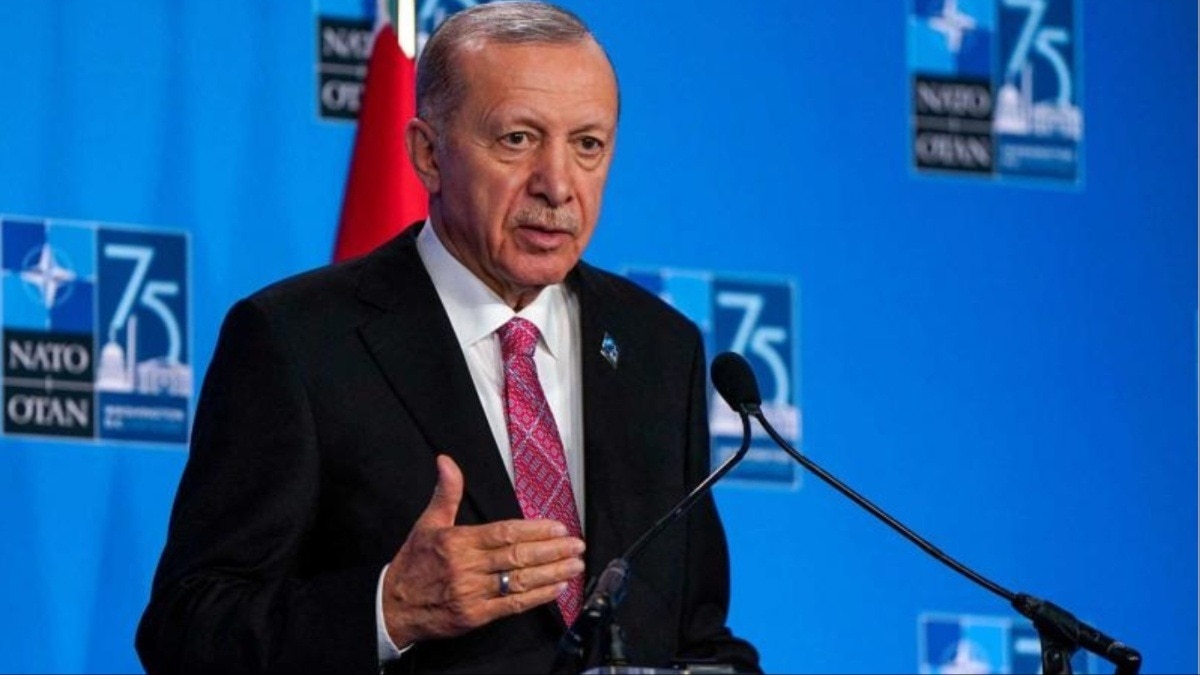By capturing Syria’s Damascus, Abu Mohammed al-Julani on Sunday ended the 24-year-old rule of President Bashar al-Assad. Under the shadow of the minarets of Istanbul, Turkish President Recep Tayyip Erdoğan could not hide his joy over the rapidly changing situation in Syria. Speaking to reporters after the prayers, Erdogan referred to the ‘new reality’ in Syria and said, ‘Syria belongs only to the Syrian people along with every ethnic, religious and sectarian community.’
This statement was not only a major diplomatic change, but it also showed Türkiye’s complicit role in the Syrian war. During the civil war in Syria, Turkey supported rebel groups on one hand, while at the same time balancing its relations with NATO and Russia.
Türkiye’s role in Syria
related news
For the last decade, Syria has become the arena of interests of many countries, in which Türkiye’s role has been very important. Ankara has long supported rebel groups seeking to oust the Russia-backed Bashar al-Assad government. Türkiye’s objective was to form a government in Syria that would ensure the security of its borders and prevent Kurdish groups from gaining autonomy.
complex equation
However, Türkiye’s difficulties increase because it is a member of NATO and its policies often clash with Assad’s ally Russia. Despite this, Erdoğan maintained relations with Russia and sometimes worked with their interests, sometimes against them.
Turkey was initially focused on preventing the Kurdish militia (YPG), which it considers part of the PKK, from increasing its strength. Because of this, Turkey made several military interventions in North Syria. Recently, when rebels captured big cities like Aleppo and Hama, it was not possible without Türkiye’s consent.
Politico Europe’s Jamie Detmer said, ‘It is difficult to believe that Turkey was not aware of these plans. Ankara’s approval is clearly visible.
attempt to negotiate with Assad
Erdogan called Assad several times for talks so that the future of Syria could be decided together. Turkish Foreign Minister Hakan Fidan and intelligence chief Ibrahim Kalin also met Syrian officials several times. But Assad made it clear that Turkey would first have to withdraw its troops from Syrian areas.
This condition also angered Russia and China. On November 15, when Hezbollah evacuated its positions near Idlib, it was captured by US-backed Kurdish groups. After this, Turkey ordered the rebels to remove Kurdish groups from these areas.
When the rebels reached these positions on 27 November, they faced no opposition. The Syrian army had already dispersed, similar to what had happened with the Afghan soldiers.
Balance between NATO and Russia
Erdoğan’s maintenance of balance with both Russia and NATO is a special aspect of his foreign policy. Türkiye’s role in Ukraine’s Grain Corridor Agreement is an example of this. Türkiye’s intelligence agency continuously monitored the situation in Syria and prepared its strategy. Omar Ozkiziljic of the Atlantic Council said, ‘Turkey may not have carried out a direct attack, but its green signal was based on its interests.’
challenge ahead
The situation in Syria is now changing rapidly. Türkiye’s economic situation is bad. The currency is falling. Inflation is increasing. And, there is pressure on the public. For Erdogan, the return of 3.5 million Syrian refugees can help him improve his image and manage the economy. But the question is, will Damascus sink into chaos like Baghdad or will a peaceful change be possible there?
(Iftikhar Gilani is an Indian journalist based in Ankara and covers the Middle East. The views expressed in this article are the author’s own.)

